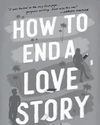試す 金 - 無料
Ethically Diverse Storytelling, Part 1
Writer’s Digest
|September/October 2025
Tips for making your story concrete.
When it comes to diversity and representation, my go-to example for how to do it well is always the Six of Crows duology by Leigh Bardugo. There are queer and straight characters; characters with neurodivergence; some with physical disabilities; plus-sized characters; realistic portrayals of PTSD and other mental health issues; various religious beliefs; and a wide range of race and ethnicities. And people say that YA can't (or shouldn't) support a diverse cast!
But the Grishaverse isn't the only one out there with realistic and diverse people. As DEI programs and other initiatives are falling under attack, we writers need to understand the importance of diversity in our storytelling. As Melinda French Gates says in The Moment of Lift, "In my view, there is no morality without empathy ... Morality is loving your neighbor as yourself, which comes from seeing your neighbor as yourself, which means trying to ease your neighbor's burdens—not add to them."
But with so much potential for harmful stereotypes, tokenism, and cultural appreciation, where is a world-builder to begin?
Like anything else we do, we just have to take it one step at a time. You can see this intersectionality when it comes to language. For example, in my Pa. Dutch household, I grew up around people who would often say things like, “What for soda is that?” or “Is the milk all?” These linguistic oddities are due to the change in sentence structure from Pa. Dutch to English, but they make the speaker stand out from others not from their region.
As you start planning your cultures, it might be worth it to ask yourself the following:
このストーリーは、Writer’s Digest の September/October 2025 版からのものです。
Magzter GOLD を購読すると、厳選された何千ものプレミアム記事や、10,000 以上の雑誌や新聞にアクセスできます。
すでに購読者ですか? サインイン
Writer’s Digest からのその他のストーリー
Writer’s Digest
100 Best Markets for Writers
A list of print and online publications looking for freelancers to contribute their knowledge on everything from pet care to finance and beyond.
65 mins
Yearbook 2026

Writer’s Digest
Memoir Plus
Add a bonus to your personal narrative for a marketing boost.
8 mins
Yearbook 2026
Writer’s Digest
Surefire Ways to Sell Your Children's Book
In my 28 years editing children's books, I've learned that publishing exists at the intersection of art and commerce.
5 mins
Yearbook 2026
Writer’s Digest
The ABCs of Freelance Success
Many freelance writers, especially those at the beginning of their careers, tend to place almost all of their professional focus on one specific component: craft.
5 mins
Yearbook 2026

Writer’s Digest
How to Write in Different Genres
Emiko Jean and Yulin Kuang share tips and strategies for how they successfully write in different genres and mediums.
8 mins
Yearbook 2026
Writer’s Digest
Small But Mighty
Why small presses might be the perfect home for your book.
8 mins
Yearbook 2026

Writer’s Digest
The Story Behind the Story
What's backstory, and what's it doing here anyway?
6 mins
Yearbook 2026

Writer’s Digest
2025 Year in Review
Publishing expert Jane Friedman recaps the biggest news in the industry.
8 mins
Yearbook 2026

Writer’s Digest
What Is Your Story Question?
When a story isn't working—when you know it's not quite coming together, when beta readers and critique partners confirm your fears but can't put a finger on why, or you're not getting offers from agents or publishers—savvy authors start trying to diagnose the issue by examining its component parts, like characterization, plot, and stakes.
6 mins
Yearbook 2026
Writer’s Digest
Writer's Digest 27th Annual 101 Best Websites for Writers
For the 27th year, Writer's Digest is shining a light on 101 websites with a goal of helping writers in a variety of ways.
26 mins
Yearbook 2026
Listen
Translate
Change font size
